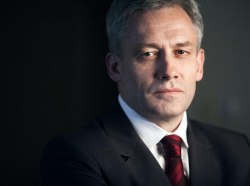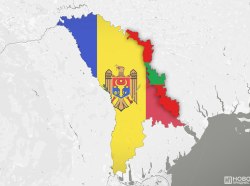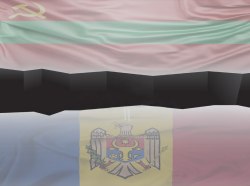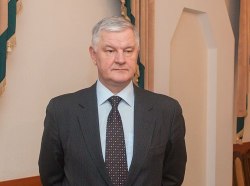The "5+2" negotiating format on Moldo-Pridnestrovian conflict has worked for 15 years and this is a working venue for seeking compromises between Moldova and Pridnestrovie, Moldovan political expert Boris Shapovalov said in an interview with a Sputnik journalist.
The importance of intensifying the preparation of a new "5+2" meeting is much talked about by Pridnestrovie's MFA. The same initiative was confirmed during a recent phone talk between Russia's deputy foreign minister Grigory Karasin and Pridnestroviaqn President Vadim Krasnoselsky.
In the meantime, the main issue on the Moldovan agenda is the withdrawal of foreign troops from the country. This particularly refers to the Operational Group of Russian Forces stationed in Pridnestrovie.
According to Shapovalov, a statement made by Moldovan prime minister Pavel Filip at a meeting of the UN General Assembly on the need to discuss the withdrawal of foreign troops from Moldova is a step taken at the suggestion of the United States and NATO, which he believes want to reduce Russia's influence in the region.
"Someone wants to expand this format by including, for example, Romania or Ukraine. This is not advisable as both Bucuresti and Kiev are parties involved in the Moldo-Pridnestrovian conflict and will back the views of the US and NATO, which will have negative effect on the negotiation process. Besides, the more parties and observers are in a given political format, the slower the process proceeds, and the harder decisions are made," Shapovalov believes.
He recalled that 400 Russian soldiers had been deployed in Pridnestrovie since 1992 to guard ammunition depots in the village of Kolbasna.
"What will happen to all these weapons if the OGRF is pulled out from the region? To carry them to Russia through Ukraine where there is a war?" said Shapovalov.
He believes that "if Kishinev and Tiraspol have not yet found a common language, then creating a hotbed of tension may benefit someone."








